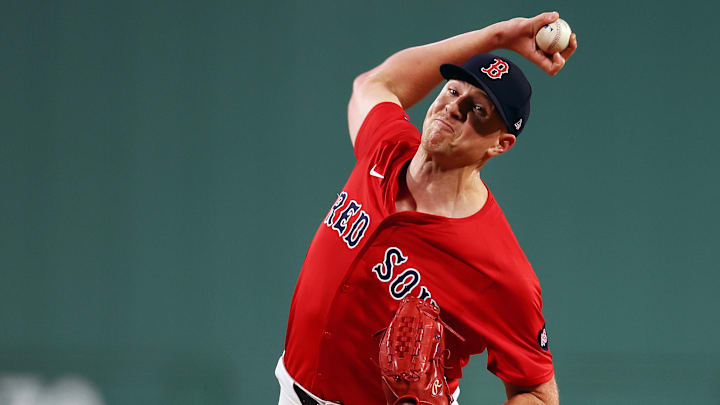The deadline for players to accept or decline the qualifying offers expired at 4:00 p.m. EST on November 19. Before this time, 13 teams players were presented with a qualifying offer. In effect, players could either choose to sign a one-year deal with their current team, or hit free agency with a stipulation: any team that signs them will have to surrender draft pick compensation.
However, Nick Pivetta was a surprising option to receive a qualifying offer. He has never pitched below a 4.04 ERA in his eight-year career, but his strikeout-to-walk ratio has been outstanding. In 2024, he struck out 172 batters and walked only 38. As you might expect, Pivetta ranked in the 88th percentile in strikeout rate (28.9%) this past season, while his 6.1% walk rate was in the 80th percentile.
The $21.05 million qualifying offer was surprising, as the Red Sox risked Pivetta's acceptance and his playing under the one-year contract. However, Pivetta declined the offer, so the Red Sox are off the hook regarding the contract. He can now sign a long-term contract with any team, and the Red Sox will get a compensatory draft pick.
Nick Pivetta declines the qualifying offer and remains a free agent. Red Sox would get a pick before the third round if he leaves. This signals a strong market and a strong read of the market from Breslow and Co. https://t.co/JJ2mevM4B1
— Chris Cotillo (@ChrisCotillo) November 19, 2024
Pivetta will be 32 next season. Given his age and track record, he's unlikely to see a deal worth anything close to the qualifying offer on a per-year basis. However, a team looking to make a postseason push that needs a backend pitcher in the starting rotation should offer him a multi-year deal.
Spotrac estimates him to make a four-year deal worth about $60 million, meaning he would make around $15 million per year. A four-year deal will likely be the most extended offer in terms of years, with Pivetta already nearing his mid-30s. However, this could change based on the state of the market, which is exceptionally top-heavy in terms of starters.
Teams that miss out on or are financially priced out of the market for the more prominent-name starting pitchers—Corbin Burnes, Blake Snell, Jack Flaherty, and Max Fried chief among them—may feel pressured to take advantage of Pivetta and offer him an multi-year contract.
It remains to be seen if the decision Pivetta and his representatives made by declining the one-year qualifying offer was the right one. They are banking on the scarcity of second-tier starters to work in their favor.
Once the first few distinguished starters agree to deals, the market should crazy, with teams pivoting to the next tier of arms, including Pivetta. His preference for long-term security over a lucrative sole term deal adds an additional quality arm to free agency.
